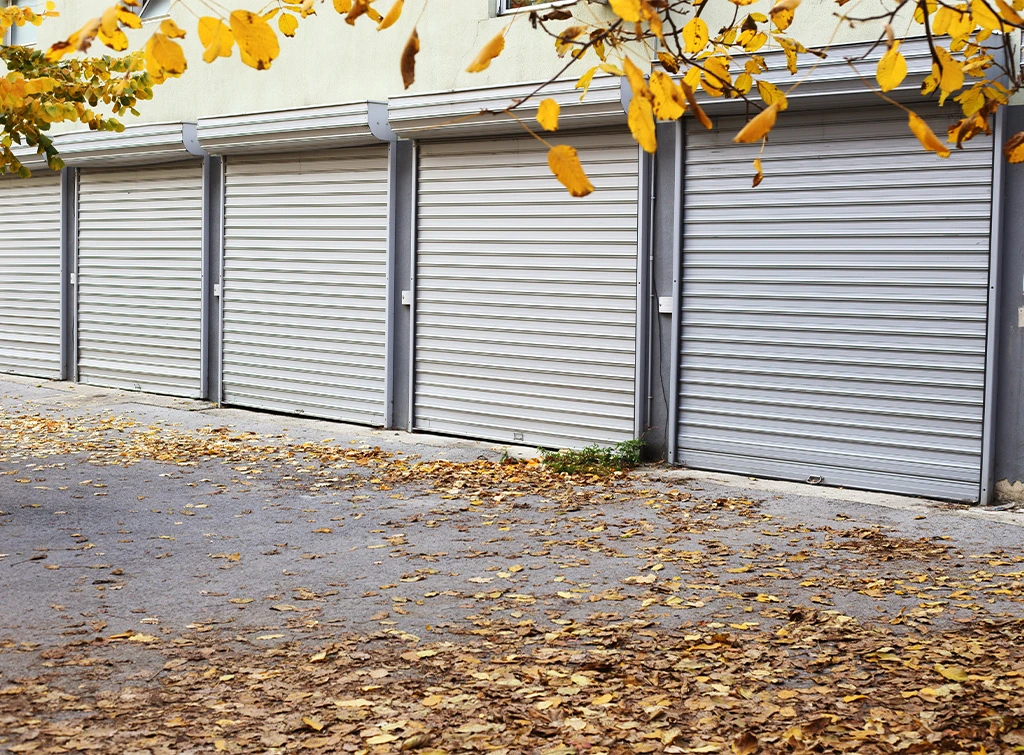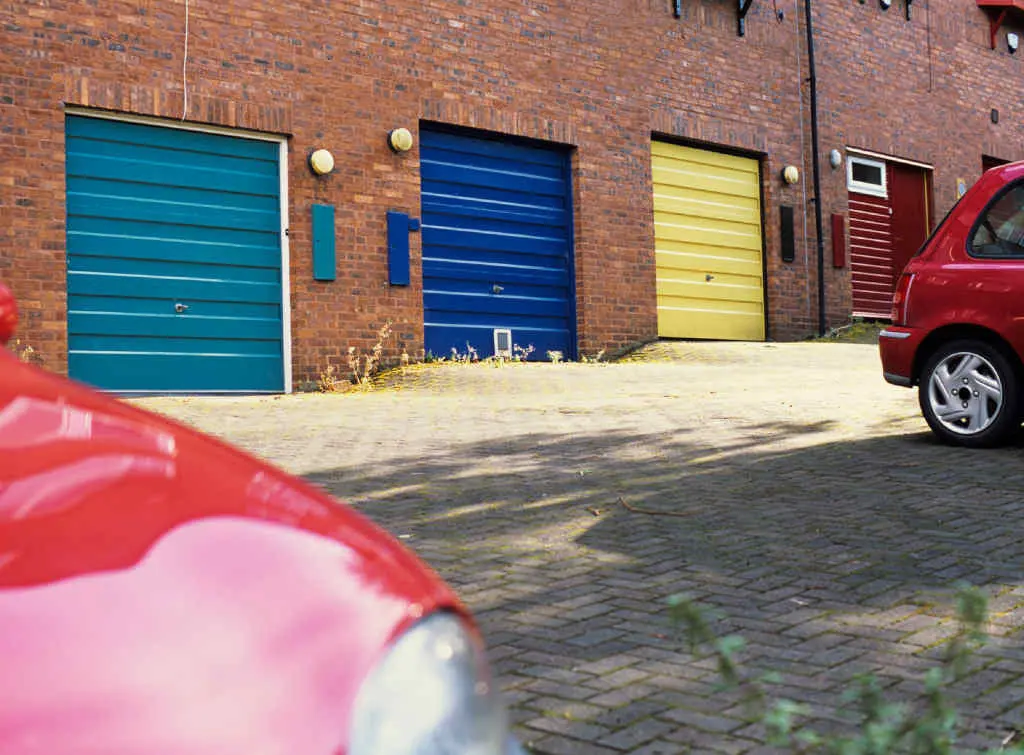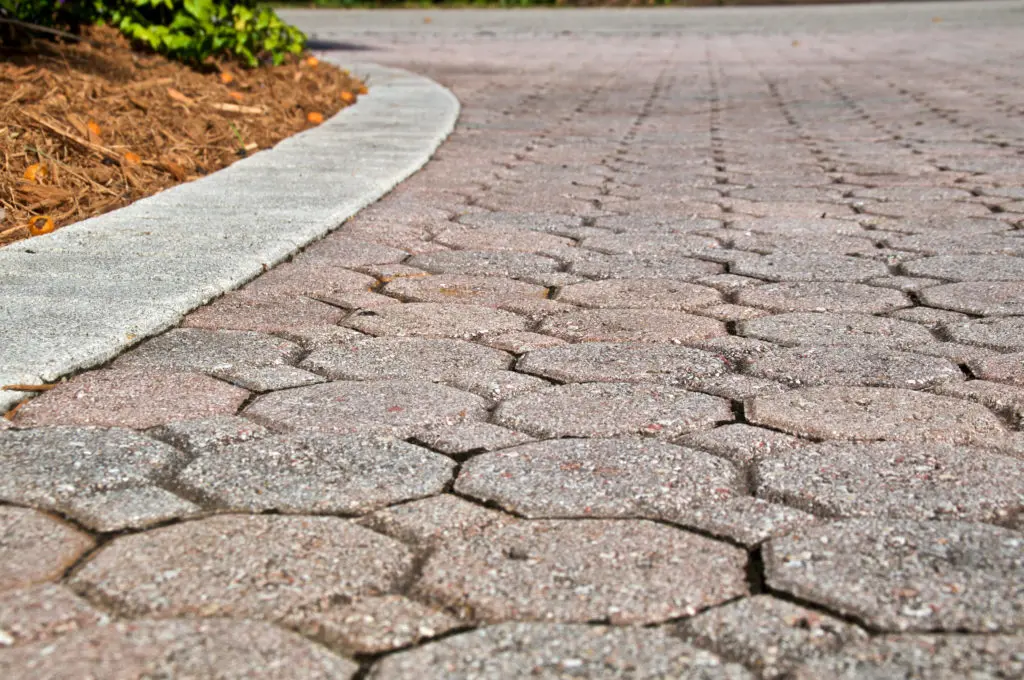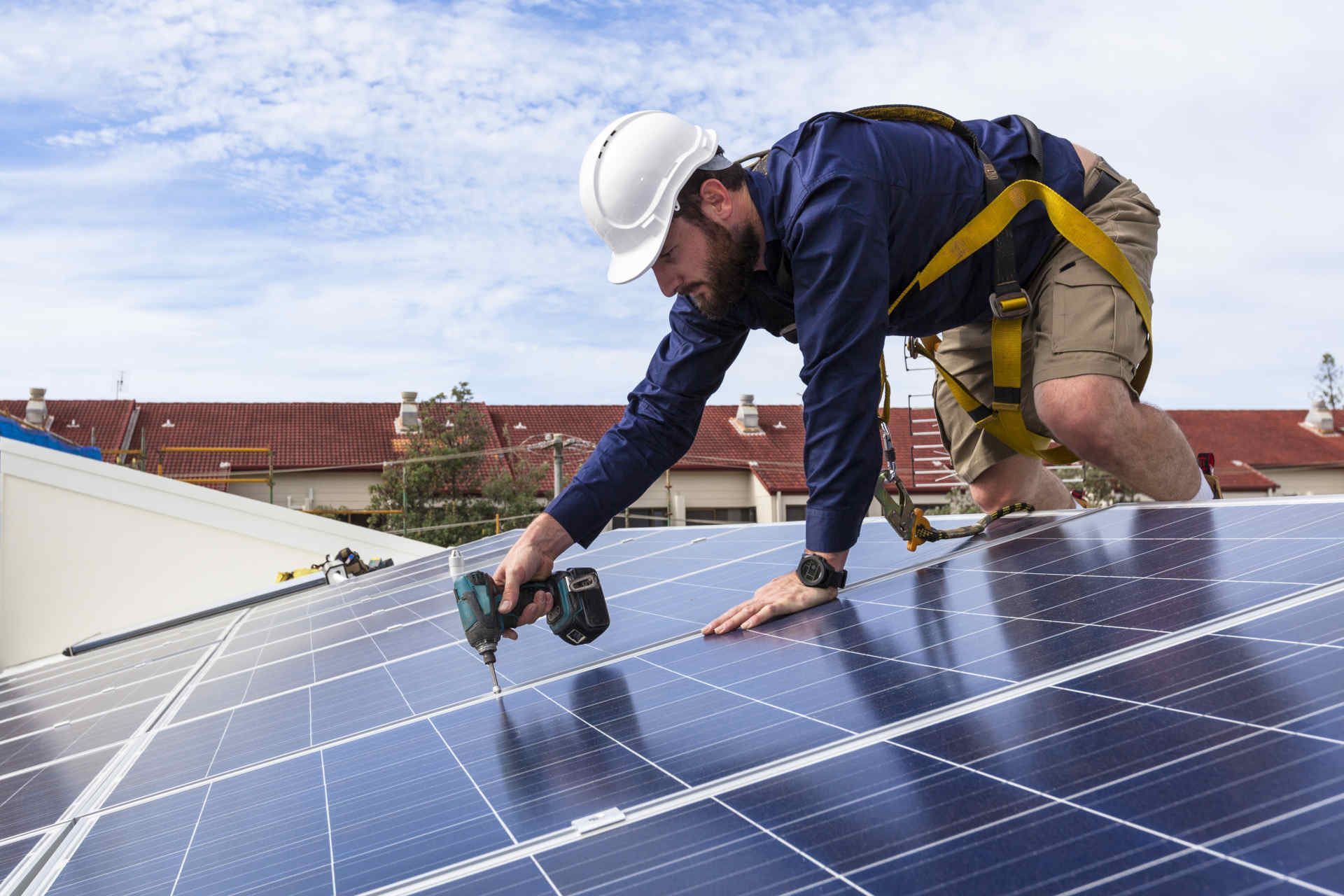Blog>Expert Advice>Everything you need to know about shared driveways
Last updated: 15 April 2024
Everything you need to know about shared driveways
Share a driveway with a neighbour? Or thinking about buying a house with a shared driveway? Here's all you need to know.

Most people with shared driveways go their whole lives without running into difficulties. But for some, it can be problematic.
Here, we'll delve into everything you need to know - from the shared driveway rules in the UK to tips about maintenance and disputes. But first things first...
What is a shared driveway?
A shared driveway is a driveway that more than one household needs access to.
In the UK, shared driveways exist for a couple of reasons. The first is related to homes built before the 1930s. During this period, many people agreed to build garages to the rear of their homes and needed to share a driveway with their neighbours to access them.
These days, it’s more common for shared driveways on modern housing estates where developers have had to economise on space.
Who owns a shared driveway?
Shared driveways are subject to several different ownership models. So, it’s always best to check your home's deeds to find out exactly what applies to your house.
There are two main types of shared driveways in the UK. The first type is an access way, standing partly on one owner’s land and partly on an adjacent owner’s land, over which both owners enjoy a right of way.
The second is where one neighbour owns the land outside another neighbour’s house. In this situation, it’s common for an agreement to be drawn up between both parties, which allows everyone to have access - this is known as a shared driveway easement.

Shared driveway laws UK
The Highways Act 1980 applies in both England and Wales. It says that people shouldn't obstruct highways - which includes shared driveways.
This means that if you block a shared driveway you're breaking the law and could be fined. Even if you legally own it!
Can I park on a shared driveway?
Neither neighbour has a right to park their car on a shared driveway. After all, doing so technically blocks a right of way.
That said, neighbours will often make arrangements between themselves. Just bear in mind that there's little legal protection on this issue.
Can I keep my bins on a shared driveway?
Not legally!
Neither homeowner has the right to store anything in the area, including bins. In fact, storing bins on a shared driveway is deemed as obstructing the right of way.
However, neighbours might choose to work something out privately.
Where does common law apply?
In terms of shared driveways and legal rights, common law dictates that the area be used fairly by both parties.
So, if your neighbour is overusing the space and stopping you from accessing your driveway or garage, you can seek an injunction in court.
What are the rules for shared driveway maintenance?
Shared driveway repairs and maintenance are often covered in a property's deeds. So, always check these to clarify what you're responsible for.
That said, it's largely expected that both homeowners will do their bit to help maintain the conditions of a shared driveway.
See the tradespeople we've checked and recommend for your job
Common shared driveway disputes and problems
There's an expectation in law that neighbours should be considerate in their use of a shared driveway. But some neighbours might find it difficult to share - or there may simply be misunderstandings that need to be dealt with.
Hopefully, you'll never have to worry about shared driveway disputes or problems. But here are some common issues to look out for.
Parking issues
One of the most common issues regarding shared driveways is to do with parking.
If you haven't properly defined how areas of a shared driveway can be used, this can quickly lead to fallouts.
A neighbour blocking shared access
If a neighbour repeatedly keeps cars or bins on a shared driveway, this can quickly lead to rising tensions. Especially if they block your access so you can't easily get to your property!
Shared driveway maintenance disagreements
Maintaining and repairing a shared driveway should be a team effort. But if someone isn't pulling their weight, disputes can arise.
Tensions can also get high if you disagree with your neighbour about how much money should be spent resurfacing or repairing your shared driveway.

Unauthorised 'improvements'
We're all different. While a neighbour might think that a gate to your shared driveway is an improvement, you might see it as a nuisance.
If your neighbour decides to make changes to your shared driveway without running it past you first, you can understandably get frustrated.
Noise and disruption
A shared driveway can easily become home to your neighbour's late-night parties or noisy DIY projects.
If your neighbour is disrupting your peace and quiet through their use of your shared driveway, tempers can begin to fray.
See the tradespeople we've checked and recommend for your job
Dealing with shared driveway problems
Some shared driveway disputes are easily resolved, but others can take a little more work.
Before you do anything to resolve a driveway dispute, it's best to make sure you fully understand your shared access driveway rights.
Any express rights to the shared driveway will be laid out in your title deeds, so make sure to brush up on these. You may also have prescriptive rights if you've been continuously exercising a right of way over your neighbours' land for over twenty years.
If you're not 100% sure what your rights are, it's best to get the help of a solicitor who can give you bespoke advice for your circumstances.
Once you're clear on your legal rights, here are some steps you might want to consider taking.
Talk to your neighbour
Your first point of call should always be to talk to your neighbour - especially if you're on good terms.
Hopefully, the issue you're experiencing is simply down to miscommunication. Or maybe your neighbour has misinterpreted their rights to the shared driveway.
The best case scenario is that you can have a civil conversation and resolve the dispute amicably.
Use a mediator
If you're struggling to reach a consensus with your neighbour, it might be worth getting the help of a trained mediator.
They'll act as a referee and help to make sure that both you and your neighbour have an opportunity to air your concerns. They'll also help you to find a compromise.
A mediator can be a particularly good option if tempers are high.
Get the help of a solicitor
If your neighbour is refusing to work with you to address the issues you're raising, you could consider hiring a solicitor who specialises in these kinds of neighbour disputes.
They should be able to send your neighbour a cease and desist letter that outlines your concerns and points out the legal consequences they could face if the issue continues.
Often, this will help you to resolve the issue without having to go to court.
Seek an injunction
If your neighbour is infringing your rights - for instance, they're blocking your access to your shared driveway or making unauthorised changes to it - then you could seek an injunction.
This should usually be a last resort, as an injunction is a serious legal remedy.
Create a maintenance agreement for shared driveways
A maintenance agreement for shared driveways is a great way to prevent disputes from occurring.
A good maintenance agreement will lay out in writing how a shared driveway can be used, who is responsible for what, and many more details. These can include:
Whether the various parties involved should pay for maintenance equally or based on linear use
How a contractor should be selected for shared driveway repairs
Whether oversized vehicles and machinery are allowed access
How disagreements should be resolved
How decisions about the shared driveway should be made
Although a maintenance agreement like this won't solve every shared driveway dispute, it can help to resolve many - and prevent them from cropping up in the first place.
Buy a neighbour’s stake of a shared driveway
If your shared driveway agreement or lack thereof is becoming problematic, then it is possible to extinguish the right of way on a shared driveway.
This won’t be applicable in every situation. But where it is, it could be a potential solution.
Just bear in mind that the neighbour who wants to extinguish the right of way will be expected to financially compensate their neighbour for the inconvenience, loss of utility and the diminished value of their property.
Consider splitting a shared driveway
Another option is to split your shared driveway.
In this case, you'll need everyone who has access to agree on how to split it. Ideally, you'll need to make sure that there's enough space for each property to have its own driveway without restricting access for neighbours.
Once you've agreed on how to split your shared driveway, you'll need to get your properties' title deeds amended, as well as the deeds of easements. This includes changing the boundaries of your properties to reflect the new ownership of your split driveway.
Always get advice from a solicitor before agreeing to split a driveway. That way, you can make sure you're not creating more problems to deal with later down the line.

See the tradespeople we've checked and recommend for your job
Do I need shared driveway insurance?
If you're the legal owner of a shared driveway, it could be worth protecting yourself against any potential claims against you.
A shared driveway can be easily accessible by members of the public. What happens if somebody trips on a cracked piece of paving and injures themselves? Or if a car gets damaged because of an unaddressed pothole?
Often, your home insurance will provide all the protection you need. But it's best to check with your provider and, if you're in any doubt, take out private road insurance to be safe.
Of course, it won't prevent accidents. But it will protect you financially if they occur!
Absence of easement legal indemnity insurance
Another kind of insurance you might need if you're considering buying a property with a shared drive is Absence of Easement legal indemnity insurance.
Let us explain:
An easement is a right to use land that doesn't belong to you. Hopefully, if you're buying a property with a shared driveway, all the necessary easements will be in place. Or, you might be able to work with your future neighbours and solicitor to create them.
However, sometimes, Absence of Easement indemnity insurance is necessary.
For instance, perhaps there are undocumented easements acquired by prescription. This is where the owners of a property have been continuously accessing the driveway for a period of time (normally over 20 years), without any issues or permission from the landowner.
Absence of Easement indemnity insurance is there to mitigate the risks of buying a property where these rights aren't formally documented. It'll protect you in case the worst happens and it turns out that you can't use your property in the way you hoped.
Shared driveways key takeaways
So, there you have it. All you need to know about shared driveways. To recap:
Neighbours should use shared driveways fairly and considerately
Legally, you shouldn't park cars on a shared driveway or use it to store things like bins
It's largely accepted that neighbours should all play their part in maintaining a shared driveway
A maintenance agreement for shared driveways can help prevent disputes
Need to resurface or repair your shared driveway? Simply type your postcode into the box below to find a driveway contractor near you.
See the tradespeople we've checked and recommend for your job
FAQs
What are the rules on shared driveways?
The main shared driveway rule to be aware of in the UK is that you shouldn't obstruct it. This means that you don't have a right to park your car on a shared driveway, or even store items like bins on it.
As a guide, neighbours are expected to use shared driveways fairly and considerately.
Can I stop my neighbour parking in a shared driveway?
Your neighbour doesn't have a right to park in a shared driveway. In fact, doing so is legally classed as obstructing a right of way.
With that in mind, if your neighbour refuses to stop parking in your shared driveway, you can seek an injunction.
How do I separate my shared driveway from neighbours?
You can only separate your shared driveway from your neighbours with their permission.
To split a driveway, you'll need to make sure that there's space for each neighbour to have their own separate driveway that doesn't restrict others. You'll also need to amend the title deeds of the properties as well as the deeds of easements.
Alternatively, you could look into buying your neighbour's stake of a shared driveway.
See the tradespeople we've checked and recommend for your job
Disclaimer
This information is for guidance purposes only and does not amount to financial or legal advice or recommendation. The content and materials featured or linked to on this blog are for your information and education only and are not intended to address your particular personal requirements. The information does not constitute financial advice or recommendation and should not be considered as such. The Checkatrade website is not regulated by the Financial Conduct Authority (FCA), its authors are not financial advisors, and it is therefore not authorised to offer financial advice. Always do your own research and seek independent financial advice when required. Any arrangement made between you and any third party named or linked to from the site is at your sole risk and responsibility. Checkatrade blog and its associated writers assume no liability for your actions.
See the tradespeople we've checked and recommend for your job


